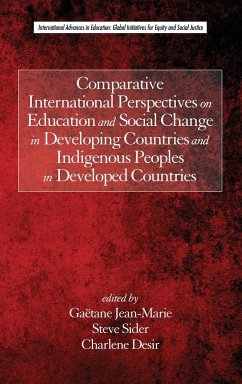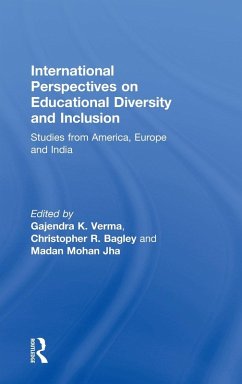
Comparative Perspectives on International School Leadership
Policy, Preparation, and Practice
Versandkostenfrei!
Versandfertig in 1-2 Wochen
204,99 €
inkl. MwSt.
Weitere Ausgaben:

PAYBACK Punkte
102 °P sammeln!
Through a multi-country study, Comparative Perspectives on International School Leadership examines the current global spread of educational leadership, occurring rapidly and widely. Exploring five international case studies of leadership policy, preparation, and practice under the framework of policy borrowing and adaptation, Magno attempts to understand and account for commonalities and differences across country contexts. Rather than assuming a particular model or theory to leadership is best, Comparative Perspectives on International School Leadership takes a policy-oriented perspective an...
Through a multi-country study, Comparative Perspectives on International School Leadership examines the current global spread of educational leadership, occurring rapidly and widely. Exploring five international case studies of leadership policy, preparation, and practice under the framework of policy borrowing and adaptation, Magno attempts to understand and account for commonalities and differences across country contexts. Rather than assuming a particular model or theory to leadership is best, Comparative Perspectives on International School Leadership takes a policy-oriented perspective and considers how and why certain approaches are being formulated and accepted, including an examination of motivations, influencers, actors, institutions, and implementation processes. Magno ultimately argues that efforts toward formalizing educational leadership reflect current global political objectives to improve schools by increasing accountability, transparency, and professionalism. This engaging book will be of interest to scholars and students in the fields of educational leadership and comparative education.














